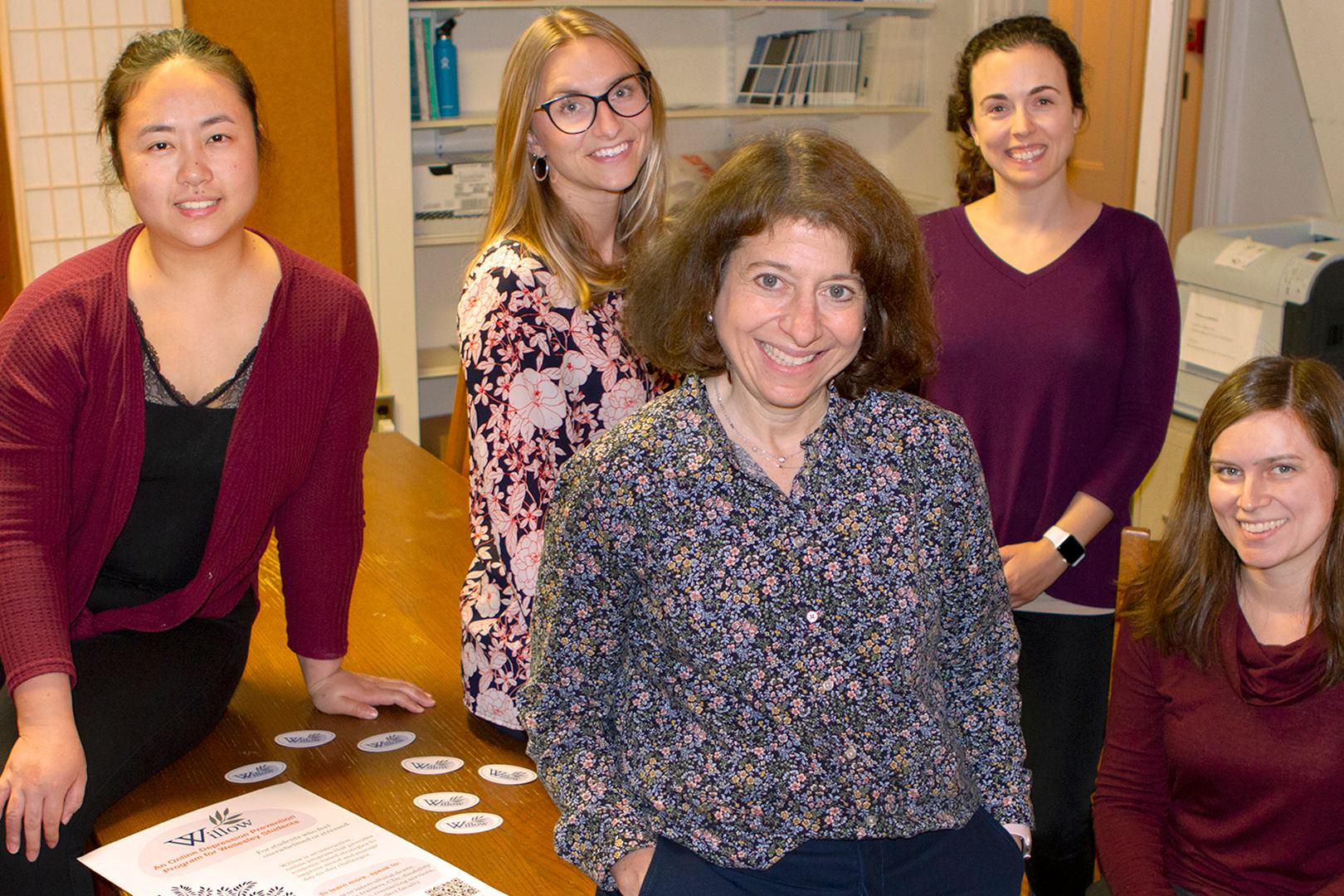Wellesley students who are feeling overwhelmed or stressed can turn to Willow, an online program developed by Tracy Gladstone, associate director of the Wellesley Centers for Women (WCW) and senior research scientist, and colleagues that offers technology-based support for managing stress and more.
While Willow is not designed as a resource for students who are experiencing or currently seeking treatment for depression, it can be used by those who would like support in managing their emotions or moods. (The name was inspired by a line from a Robert Jordan novel: “The oak fought the wind and was broken, the willow bent when it must and survived.”)
Gladstone’s research focuses on the prevention of depression in young people, adolescents, and families. She and a colleague had created and evaluated an internet-based program similar to Willow for adolescents, and she said she decided to adapt it for college students, knowing that many struggle with low mood, depression, and anxiety. “I had this evidence-based resource, and I felt like it just made sense to try to introduce a preventive resource to the college population,” she said.
Willow consists of 14 modules. Students have the freedom to work through them at their own pace, and the skills they learn in each build on each other. To access the program, students can schedule a preliminary motivational interview with Katherine Germak, a licensed social worker and one of the Willow team members, or just get started on their own.
Skipping the interview is a new option this year. “I know that if you put a person in an online intervention and you ask them to just do it, to make behavior changes, it doesn’t really work,” said Gladstone. “These programs work better if you attach them to some sort of human contact.” But students saw this as a barrier—“[they] told us it’s really hard for them to email and to reach out to us,” she said—so the team made that step optional.
During the design process for Willow, Wellesley students participated in focus groups, answered research questions, created characters for the modules, and shared stories, and they provided voice-overs to help make the program ADA compliant.
Katherine Buchholz, a postdoctoral research scientist with WCW who has been helping with Willow since 2019, said the team tailored the program specifically to Wellesley students. “We want students to be able to … have a connection to campus through the Willow program,” she said.
Buchholz said students find it helpful that Willow walks them through their long-term goals and how to achieve them—something that can get lost in the busyness of a school week. They have also said they appreciate the cognitive skills the program teaches. Willow encourages them to “look at their thoughts, look at the automatic thoughts that are coming up for them, and then try to reframe them or find more helpful ways or more helpful things to tell themselves,” she said.
Gladstone, who will be moving to Brown University Nov. 1 but will continue part-time at the WCW to work on Willow, hopes the program will keep growing. She would like students to see it as a resource where they can learn problem-solving and interpersonal strategies that will help them remain healthy while navigating the challenges of being a young adult. “Ultimately, I would like to expand the resources offered through this platform, and to have the opportunity to work with other colleges and universities to develop similar programs for their specific student communities,” she said.
